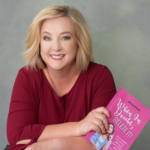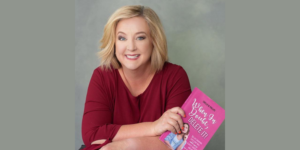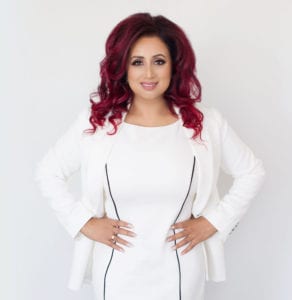Raj Girn: Hey, guys, thanks for tuning in to another exciting episode of The Transform Your Confidence Show. Effective communication is wholly dependent on cultivating a mutually reciprocal relationship between the speaker and the listener. The learning is in the exchange that transpires during this discourse, and part 2 of this week’s ‘The Transform Your Confidence Show,’ is focused on how to get this exchange right to benefit both sides. My guest is one of today’s revered storytellers, a multi-award-winning journalist, and the news anchor for Global News, Farah Nasser.
Here is Part Two of our conversation:
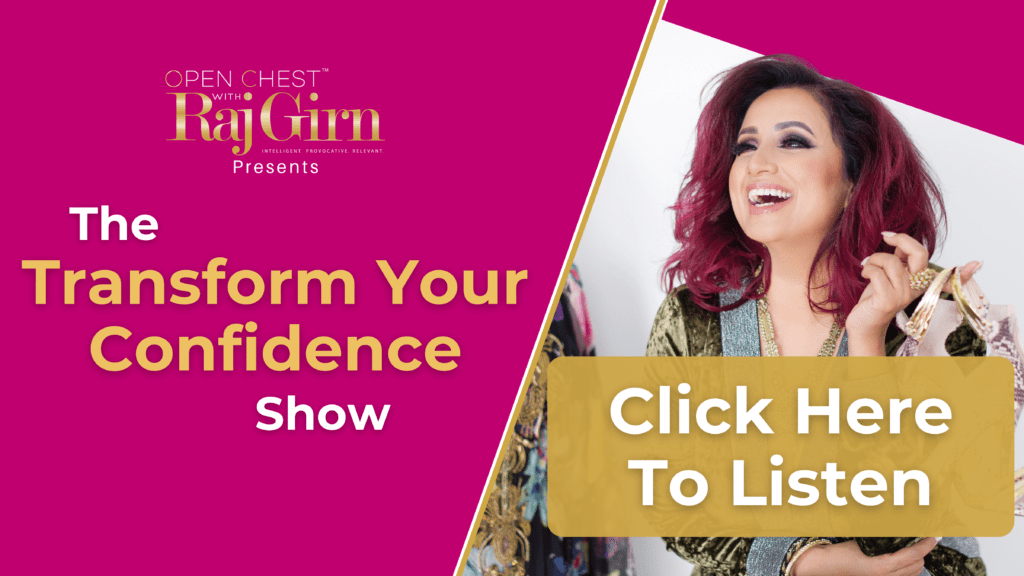
Raj Girn: I want to ask you this, a part of storytelling is providing the pertinent information, as we know. We’ve been talking about this. Another part is deciphering what words to use. And then there’s the whole thing about delivery. So we have touched upon all of these. But what I want to do now is I want to bring it more into the conversation for people to actually be conscious about the fact that this is actually what we’ve been talking about. What can you share with everyone about the need to knows here? Because without getting this right, even the most elementary communications become flawed and ineffective. You talked about the fact that you’ve got to ask the right questions. So let me ask you to break this down for us. So the first thing I want to ask you is the provision of appropriate information. How do we know what this is? You’re a pro at this, so I want you to share that.
Farah Nasser: So do you mean deciphering . . . just because I want to make sure I answer this right? Do you mean deciphering what’s accurate and what’s not accurate or where you’re getting your sources from?
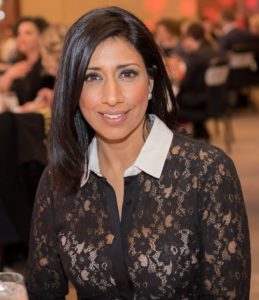
Credit: @HaroldFengPhotography
I think all of the above. I think all of what you just said there is important to make sure that you are checking off the boxes to say that you did your due diligence to at least hopefully get it right.
I think we live under this notion where there’s two sides to a story, right? There’s not two sides to the story. There’s many sides to a story. So when you’re thinking of telling your story or telling a story first, write down who you think the stakeholders are. Who are the different people who you want to hear from? Is it government? Is it the average person? Is it a community? A certain community group? Is it a medical professional? Whoever the story, your story is. And then you have to look in that space for different perspectives that exist now. This is interesting because we’re actually having an issue with this when it comes to the medical community right now. Because we see all these doctors who have differing perspectives on different things. And we have to kind of not just rely on one expert, we have to look at other things. And this is a lot of work. This is not easy, but you have to look at the different perspectives. You have to make sure that you’re not being fooled by misinformation and then you have to also . . . The thing that I always think about when I think about interviewing somebody or listening to their perspective, I try to find out the why, like what is the motive?
“We live under this notion where there’s two sides to a story. There’s not two sides to a story. There’s many sides to a story. So when you’re thinking of telling your story or telling a story first, write down who you think the stakeholders are. Who are the different people who you want to hear from? Is it the government? Is it the average person? Is it a community? Whoever the story, your story is. And then you have to look in that space for different perspectives that exist now.” ~Farah Nasser
I’ll take the doctor example because it’s an easy one. Is this person an emergency room doctor who’s seeing a lot of E.R. patients come in, but they are concerned that people are scared to stay away from the E.R. for fear that they will catch COVID, so they’re telling people the situation is not as bad. Come into the E.R. to the door. I don’t want to see you later down the road when it’s too late. Is that where they’re coming from? Which is not a bad thing? It’s just where they’re coming from. Is that what their message is in their mind? Are they an ICU doctor who sees people at the end of their lives? Where on the spectrum? And again, it doesn’t necessarily have to be a political play with these doctors. I really don’t think it is. I think it is that they are basing things based on what they see every day, which is totally okay. But you need to know that. You need to know that when you’re going into a conversation, what are they seeing? Where are they coming from? So that is something that I think about critically. And of course, then there’s the whole political angle of this, right? All the politicians, all the key players, all the lobbyists, all the stakeholders. So that’s kind of the way I look at it now. Think about the why. What’s their perspective? What’s their motive? What message do they want to get out? And then you can kind of work through that once you know that.
Say you’ve done all of that. The next step is the words to use that are the right words to use. Talk to me.
Yeah, this is also a research. To be honest, I do a lot of this. I do a lot of this when I’m having conversations. And the other hard part about this is the authenticity, because you have a limited amount of time, you have interviews you want to do, questions you want to ask and you have to get the wording right for what is said. So, again, this is just work. This is generally work. And sometimes it takes you down a rabbit hole. So the word for example, I’m doing a project with the History Channel about women’s right to vote in Canada and we had to take out the word female. we had to take that word out and replace it with woman. And I had to get back and I could be like, okay, where did this come from? Why can’t we use the word female? Why are they scared to identify? Or why are they saying that we’re not including everybody when we use the word female? And I had to personally go through that rabbit hole to change my script to be able to deliver it. It’s step, step, step, step, step. But you have to get behind it because you’re not behind it . . . I mean, my writer producer and get behind it. But that doesn’t matter. I need to be behind it. I need to understand it. Right? So I think it’s research.
That’s what I love about you as a storyteller and something that I want everyone to really tap into when they’re telling their stories, whether it is entertainment based, political based, you’re trying to sell a product or service because it’s business based or you’re trying to nurture relationships with people. I think is really important to really hone in on on what you’re saying here. I feel it’s important that the words that you use make sense to you before you deliver them. And that’s it. That’s it. That’s the other part of what you’re saying here. Let me ask you then the third part of this. That’s the delivery of those words. Because we’ve all seen this. The most incredible operator can hardly say anything but say everything and others can use multiple words and do their best to really kind of engage people, but their cadence, their essence isn’t really coming out. You do this in front of the camera. You do this in live audience circumstances. You do this in many different arenas. I want to ask your opinion, how do we deliver those words with the right cadence? What do people need to know?

I think it’s, again, not trying to be the smartest person in the room. I think that really is key there. Probably a couple of years ago, there was a big, huge Toronto Board of Trade and I was hosting and there was a guy named Geoffrey Hinton who they called in and he is the godfather of artificial intelligence. He is probably one of the smartest people in Canada. And he had to go up and speak. And I was just preparing for this long speech that I wouldn’t be able understand. I was just like mentally like, okay, I don’t know anything about this. I’m just going to sit here and try to understand as best I can. And I often take notes just because it helps me learn. And I was getting ready and he came out and he was just . . . He’s an older man, and he just he spoke to me, like it was me. Do you know what I mean? Like he had all these smart people in this room, the head of tech and whoever. It didn’t matter, everything he said, I understood. I totally got. And it really made his message come across more. And I was not expecting it. And I think he knew that. He didn’t have to prove to everybody that he’s the smart guy because his message wouldn’t get across. A lot of people would just get it over their head. I think it’s really just not trying to be smart, as weird as that sounds. Not trying to, I guess, please everybody and show off how smart you are. That’s what it’s about. Those stories never work. You can see right through that and you lose a bunch of people anyway. Yeah. So I think to me that delivery is something that’s so key.
I love what you just said there. Another key component that I want people to really hone in on in what form I just said, and that is understand who you’re speaking to and not what you’re speaking to them about. So that’s kind of what I heard you say here, Farah. So, if you’re this person that has this incredible intellect and knowledge on a specific subject matter, but you’re speaking to a room of five year olds and you have to disseminate that information down, know who you’re speaking to. I know that’s an obvious example. And everyone would be like, okay, I need to kind of know how to bring this down to their knowledge. But it is about that when we communicate, it is about meeting your audience where they are in order for you to kind of get buy in from them. And I think that’s the magic of being a great communicator. What are your thoughts on that, Farah? Do you agree?
“Another key component that I want people to really hone in on, in what form I just said, and that is understand who you’re speaking to and not what you’re speaking to them about.” ~Raj Girn
Yeah, I wholeheartedly agree. And I think on the news it’s hard because you have people from all over. I fill in for our national newscast and you have perspectives from all over the country. You have people living in remote areas like Yukon and Northwest Territories. You have people downtown Toronto. And you’re trying to convey the message and get people who don’t live anywhere near a big, diverse city have to care about diversity. You’re trying to explain to them. And again, it’s very challenging to have to do. But there are some things, Raj, that really unite us on a level, things like music, dance, the arts, love, compassion, generosity, family. There are things that just . . . patriotism in a way, being Canadian, opportunity. You know, the things that are just like their baseline here. And they link all of us. And I try to kind of remember that when I’m doing that kind of work.
But you’re absolutely right. You have to know your audience. And then there’s also like this guy, Geoffrey Hinton, I gave you this example. He could have been preaching to the choir, right? He could have been talking to the people that are already big fans of his that understand. My husband, never comes to dinners with me but he did for this one, he’s a big fan of this guy, he works in tech. And he was like, yeah, I kind of knew all that he was talking about. And I thought but it’s not for you. This wasn’t for you. This is for people like me. You know what he was saying. This was for me. This is for people who don’t understand this stuff, you know? So, again, you have to really know, as you mentioned, you have to know your audience and find out what can connect you to them and connect them to each other.
“You have to know your audience and find out what can connect you to them and connect them to each other.” ~Farah Nasser
Oh, my God, I love it. And this is the art of communications. It’s really interesting you’re saying that Farah because it kind of brings me to this other side of the coin that I want to talk to you about, because you know a lot of what your role is in the role of people in leadership positions is to kind of you get this sense that it’s all one sided, right? Like, that’s what the sense you get. That this information is coming from the person. And then I will do with it as I will. One aspect that we haven’t touched upon yet is the reciprocation part, the feedback from the audience. One thing that I personally believe in is the biggest reason that people are ineffectual in communicating today is that they mistakenly think it’s a one way process. They make it a soapbox experience instead of it being a collaborative experience. Everything that you’ve just talked about in our conversation today screams collaboration, everything you’re talking about and that you’re deciphering and you’re explaining step by step for me screams collaboration.
Even though you are virtually in front of an audience, which kind of is what you do for a living, or if you’re in a room of people where you’re delivering a message, there’s a sense of, oh, well, this is about me and I need to make sure that I get it right without realizing that the indication on the other side is what makes your job and you good at your job. That’s what gives it legs. What are your thoughts on this? I really want to ask you this because, again, another thing we’re never taught. Just like we’re never taught how to rear children. We’re never taught how to be in relationships. How do we manage the conversation when our parents get older and they go from being our mentors to being in the other role? We’re not taught these fundamental things. And communications is one of them. Like communications is a two way street. But people look at communications as being I’ve said what I needed to say, so that’s the end. Your thoughts?
I think it’s what you said. Like, I always think it’s like listening to understand, not just to respond. Do you know what I mean? lt’s like, listen, what am I going to say next? What am I going to say? What am I going to say after this person talks. No, no, no, no. Listen, like really listen. It’s hard. It’s not easy to do that cause you’re in your own head a lot of the time. The other thing that I thought of when you were saying that, again in my own head maybe, is that you will get criticism and not all criticism is the same. There are people who will be all on one end of the spectrum who will just want you to fail, who are just waiting for you to just mess up. There will be those people. But then there’ll be other people who are maybe not happy with what the story you’re putting out there or what you’re telling. But they represent a chunk of the population that may have something going on behind the scenes.
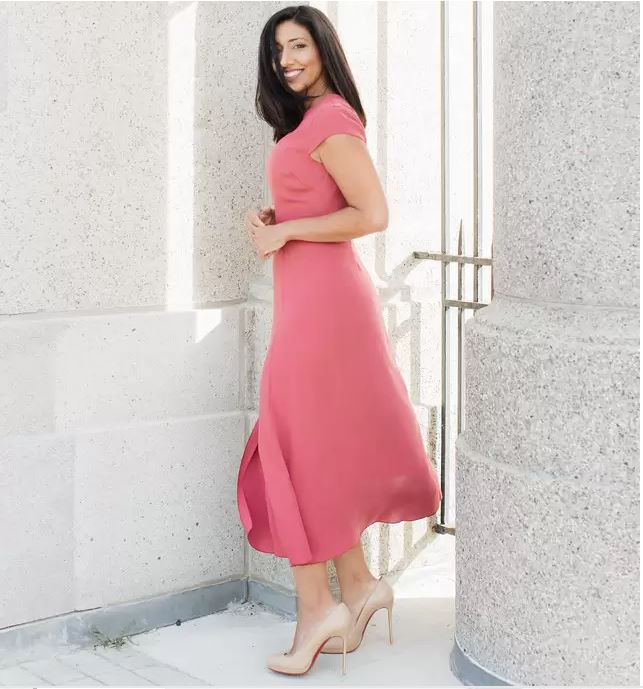
So, for example, let’s talk about Trump voters. So, Hillary Clinton wrote them off as deplorable. She just said “you’re deplorables” and that’s why she lost. I mean, she lost the election for many reasons but that was a big part of it because she said to them, “you don’t matter. Nobody cares about you. What you’re saying doesn’t make any sense.” If you just stopped and thought, why do they feel this way? Because there are some . . . again, spectrum. They’re not going to change. Nothing’s going to happen. But there are some who are close to the spectrum, but not quite there who are reasonable, who can actually understand but want to articulate why they feel this way. Why do you feel disenfranchised? There’s these people who are really upset with some of the coverage that I’ve done.
They’ll write to me and they’ll be so angry. And then when I have some deeper conversations with a few of them, and again, these are ones that I feel comfortable talking to you. And there’s some that I’ve engaged in conversation. And I say, “why do you feel like this?” And it’s like, “well, because I’m left out. And what about me? I want to have a job. I’m losing my business. I’m losing my job. You know, COVID . . . I don’t believe in lockdowns because I’m going to be bankrupted. I won’t be able to feed my kids.” So there’s always a behind-the-scenes right? Part of why they’re acting out, why they’re criticizing you. And if you can even tap into that and get those people in the tent and get them to understand and have a real back and forth, as you said, I mean, that content . . . Like the sky’s the limit with that type of content, because that’s really challenging and hard to do,
But important to do, sweetheart, right? I mean, we’ve seen what’s happened this last year. We’ve seen what happened with Me Too. We’ve seen what’s happened with the power of social media. We have seen it all in this last year more than I think . . . I mean, I feel that if we haven’t learned all of what we needed to have learned from this year of telling, then I don’t know what other things need to happen in order for us to step up and step into what it means to be a human today. And it’s very different from a lot of things that we were taught when we were younger. We have to reimagine the world that we want our children to live in. We have to do that now. So, I mean, that’s my little soapbox. But I want to kind of get ready to . . . Right? And you know me, I always go a little more into the philosophical way of looking things because there’s always a bigger picture to the immediacy of what we deal with as humans. There’s always a cliche being what it is, but the lesson is always learned after the fact. So I hope that we can try and learn the lesson as we are experiencing the present that we’re experiencing. I feel that that may just change the game for us as we try and reimagine a better world for all of us as we move into the future. What are your thoughts on that before we get ready to close off?
Yeah, I mean, I honestly, I have to say, I’m a real glass half full kind of see the positive type of person, but I worry I really worry. I know politicians keep saying let’s build back better. And then on a personal note, I’ve made some pledges to myself about putting fences around family and that kind of thing, and you know that’s been important to me from the start, but even more so now. And not getting back into this rat race of like driving to hockey and then gymnastics and to just instead not over program everybody, So I’ve kind of made that pledge to myself. But I’m also scared personally on a smaller, tiny level that I will forget that and that I will go back. And thus I am worried for us as a collective that we will forget, that we will forget these important lessons learned when life gets exciting again and the roaring 20s come back and we are all living our lives. And we, the people with privilege, forget that what they were taught and what they saw. I mean, we see the inequity when it comes to COVID. And I see people who didn’t see that before who now understand it and see it. But I worry that we’ll get back into life and things will be exciting and we’ll forget that. And I don’t know how to kind of hold on to these values. Even myself, as I said, about extracurricular activities. I don’t know how to keep that. And I do I really do worry about that.
You know, it’s interesting that you said that because that’s a conversation I had just recently with someone. And this person was an older gentleman who has been through the wars, like the World Wars, still living today. And he said to me that the way you’ve got to look at COVID is the way that we have to reimagine post war. Like what other changes that we need to make so that we don’t have to go through this again. And what are the things that should continue on that were pre-war time, all good things that should be there that work? We don’t have to reimagine everything, but we do need to reimagine the things that won’t bring us back to repeat history. Right? That’s powerful.
“We don’t have to reimagine everything, but we do need to reimagine the things that won’t bring us back to repeat history.” ~Raj Girn
Yeah, that is really and I never thought about that. That’s true. Like there were things that worked, there were certainly things that worked. So I think we have to look at it that way too.
Yeah, absolutely. So if we were to encapsulate everything that we just finished talking about, and I mean you and I, we can talk on for hours. But I want to encapsulate this conversation and bring us back round full circle. So if you were to encapsulate everything that we’ve just been talking about, what do people need to get out of our conversation pertaining specifically to creating a compelling story to engage the right audience? Give me that nugget, darling.
Be authentic. Be yourself. Be okay not being the smartest person in the room. Be interested instead of interesting. Know your audience. And find ways to articulate your message from a place where you resonate with it, where you connect with it. Again, be yourself, because if you’re not yourself, it always shows. So I think if there’s one thing, it’s to be authentic and to be okay being a don’t-know-it-all. You know, think like a journalist in a way. Learn about different subjects. And the last thing is when you ask questions, ask them from a place of compassion. Put your guard down. Ask them from a place of seeking knowledge, of trying to understand and not judgment and take that judgment away.
“Be authentic. Be yourself. Be okay not being the smartest person in the room. Be interested instead of interesting. Know your audience and find ways to articulate your message from a place where you resonate with it, where you connect with it.” ~Farah Nasser
Oh my gosh. So powerful. I’m getting goosebumps listening to all of the above. So to close off Farah, I wanted to ask you, is there anything that you want to leave people with that perhaps I haven’t asked you? That may be something that will help them to be better storytellers from the perspective of being intentional.
I think, know that it’s work. And if you don’t put in the work, it’s not going to happen. I think that’s the toughest part about it. I think we live in such a Nescafe society where everything is just let’s just put this out on the Internet. Let’s not put too much thought behind this. I want to be relevant. I want people to see me. I want them to know me. Have a conversation with yourself to find out what the purpose is. What is your purpose behind this? And kind of tailor your message to that. And when you’re doing that, don’t just think about your own self. Think about other people. Think about how you can kind of bring those other people in the tent that might not be in the tent. Think about what your message will mean to other people. You know, when when we see young people. What you put out, what would that mean to a 14, 15 year old girl? How would that resonate with someone? So I guess just know your purpose. Be authentic and know your purpose. And it’s work. It’s not easy. If it was easy, everybody would be great storytellers. And we’d all have this. But we don’t it doesn’t work like that. So, yeah, put in the effort and have have a purpose.
I love everything about what you just said. I loved every moment that I had the opportunity to chat with you, my friend. Thank you so much for bringing your wealth and layers of wisdom to this and your true, authentic, everyday person that you are. And I think that’s the thing that’s so key in the storytelling process as well. To be authentic is, we don’t always get it right, but people will forgive if you’re honest and clear about the fact that you don’t always know everything.
And one thing I want to close off with is I love that you said that, the whole idea of communications and storytelling is truly about making sure that you ask the right questions is something we don’t do, sweetheart. We don’t even do it in our relationships with the people we love. I think that this time that we’re living in, where we are bombarded, and we also bombard, content and information and communications that we need to ask the right questions. And I feel that is a great fundamental question to kind of close out this show with is know why you’re doing what you’re doing and why that communication is important and who will it affect in the positive or not positive ways.

Yeah. And I think the question thing is so key because you’ll be scared to ask these questions. You’ll be worried to ask these questions. But you can ask them. You just have to ask them from a true place, like not a fake true place, like a true place of of wanting to really understand and learn and not in an aggressive place, not in a difficult way. I’m actually having a hard time articulating this. But I think you understand what I’m trying to say. Be soft when you’re asking these questions, I guess is what I’m trying to say. Soften up. Just let it go and don’t try to be the smartest person when you’re asking them and ask them honestly. And do your research before you ask these questions. So know a little bit about what you’re getting. Do that research on the Internet. But the real research is the people. And, again, it takes work but it’s worth it.
Absolutely. But any growth doesn’t come without stretch. I say this all the time and stretch is painful. It’s the way it is. Right? Thank you, my love. I adore you and everything about you.
Oh, I adore you.
Come back on. I would love about something else.
I would love to.
Thank you, my love. Thank you so much.
Any time. For you, anything.



